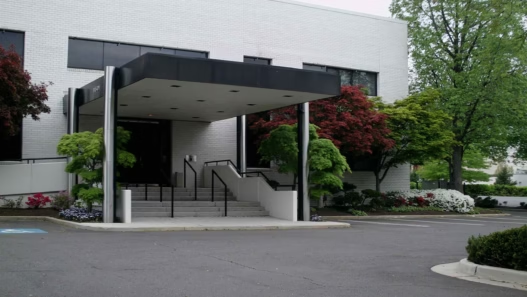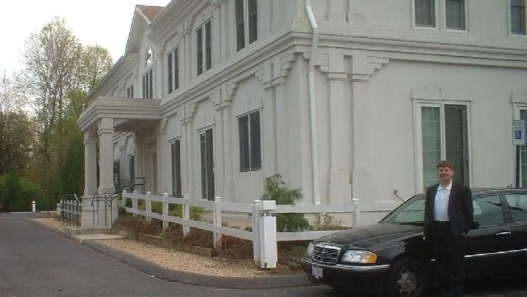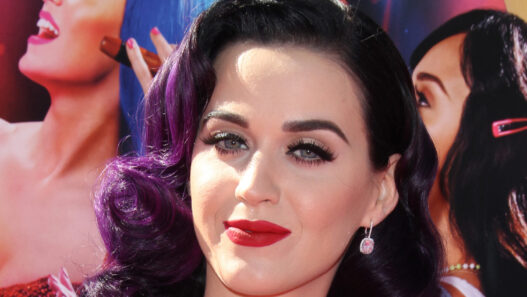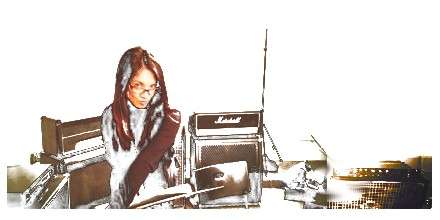Please meet the smart and beautiful Sara Wharton-Ali, a freelance casting producer from Los Angeles.
Sara has helped to find talent for such national hit series as NBC’s The Voice and The Sing-Off and ABC’s Secret Millionaire. Most recently, she has been working on 10 Million Dollar Bigfoot Bounty, a new reality show promising to pay a heap of money to anyone providing evidence that Sasquatch does exist!
 Amidst the nonstop whirlwind of all these entertaining surrealities and superrealities, Sara has remained unfazed. She is well grounded in her belief that, finally, it’s the simple human touch which counts the most.
Amidst the nonstop whirlwind of all these entertaining surrealities and superrealities, Sara has remained unfazed. She is well grounded in her belief that, finally, it’s the simple human touch which counts the most.
*
We interviewed Valerie Gangas a few months back. You know each other, right?
SARA WHARTON-ALI: In fact, we grew up together. I’ve known Val since we were 4-year-olds. We lived in the same town, Oakbrook, a tightly knit community of 10,000 people just outside Chicago. So we went to the same kindergarten, to the same high school. After that, going to college, we went our separate ways.
Then, literally 18 years to the month since I had seen her last, we reconnected in Los Angeles. In all seriousness, we just sat down and it was like we had seen each other the day before! We’ve been in touch ever since. Our bond has such a strong root.
Valerie started to practice Transcendental Meditation under quite dramatic personal circumstances. How did you come across TM?
SARA WHARTON-ALI: Well, for a long time, my life was very easy in a sense. I strummed along and strummed along…. I just thought my life was going to go a certain way, and it had been going a certain way – until it didn’t anymore.

I turned 30, divorced, and had an aunt who was very close to me pass away from cancer. I lost complete feeling of my left side of my upper body – not being able to do even the simplest things like push the alarm on my car…. All of this happened within 3 months. On top of it all, my father had been suffering from Alzheimer’s, and he was heading for a major decline… I sort of lost it, you know.
Yet these difficult moments are the meat of life, in a way. That’s what you want to sink your teeth into! I found a person who, with a lot of prayer and healing and Kabbalistic work, was able to restore the physical part of me. That got me very curious and started me on a spiritual journey. I immersed myself in Judaism, ending up converting a few years later.
From there, my curiosity has blossomed even more. My Dad happened to be passing away during that time, and that opened up a whole new world of questions and… for lack of a better word, excitement. I wanted to see what else was out there. I tried many things and avenues – LA is such a hotbed for every kind of spiritual experience.
Then, one day at a party, I ran into an old friend whom I had worked with but hadn’t seen in years. She had mentioned that she was in remission from breast cancer, and that something which had really helped her on that journey had been Transcendental Meditation. I had seen many stories and articles on TM before that moment, but it was there at that party that I decided: “I’m going try it!”
It will be two years at the end of April that I’ve been practicing TM now.
Where would you put TM on the map of your spiritual travels and discoveries?
SARA WHARTON-ALI: It is the main practice for me. A lot of stuff I’ll go and look at and try out, but often it simply doesn’t hold water – for me. It might be different for so many other people, and that’s part of the reason I’m so curious. But for me, nothing really stuck until TM.
My spiritual core is getting stronger. Rather than working from the exterior parts of my body, I feel that Transcendental Meditation is nourishing the root of the root of the root. It builds from inside out.
Does this building process come naturally to you? How would you describe the amount of effort you invest in keeping it going?

SARA WHARTON-ALI: Honestly, it’s not even a choice. It’s like brushing my teeth, a part of my daily routine.
It’s something that holds me together, and grounds me, and balances me. There may be a handful of times over the past two years when I’ve missed one of my daily sessions, but there hasn’t been a single day when I’ve not done TM at all.
And when I happen to miss that one session, I feel it….
With your schedule and travelling, it’s probably quite a mission to find the place and time for it twice a day.
SARA WHARTON-ALI: You know, it’s a question of carving out the time for it. But it has to happen, for me – no matter where I am. Everybody has a busy life [or All of us have busy lives]; I certainly get that. But I guess it’s a matter of priorities, right? If I have to get up a half an hour early to meditate, then I will get up a half an hour early. That’s just the way it is.
Listen to Sara comparing the texture of her day with and without meditation —
You work in the entertainment business, in an industry largely oriented towards the external, the materialistic aspects of life. Is it doing the industry an injustice to say that it is almost as far as one can get from the stillness of one’s spiritual core?
SARA WHARTON-ALI: I guess it depends how you look at it.
I work mainly in reality television, on various projects ranging from competition shows to dating shows to music shows. And yes, reality TV does often draw a lot of criticism.
However, in my job as a talent producer, I get the chance to meet a lot of people in their comfort zone. For instance, last year I was looking for people who were experts on Bigfoot. Personally, I had no specific interest in this – but once I get hired for a show, it’s all about research and learning to know the people who are deep into this particular world. So for me, it’s a huge lesson in whatever I’m working on! A huge lesson of non-judgment and openness….
Kudos, honestly! This seems like an authentically rewarding and positive angle to approach it from. After all, aren’t we all creating our own worlds – with the unspoken assumption that my world is the right world? So… how can we be so sure that Bigfoot does not exist?
SARA WHARTON-ALI: Exactly. Who am I to say that their world does not exist?
For me, the career path I’m on has opened me up greatly. You know, it’s kind of like meditating. People come and they go; they don’t stick to me! They move through.
And also, there’s the aspect of enabling people to fulfill their dreams. For instance, I’m presently working on NBC’s The Voice, a show that gives the stage to new musical talents. It’s a true gift to go to work and to talk to someone from a small place in the middle of Tennessee who would otherwise never, ever have the opportunity to have his voice heard on a platform as big as this.
To sit down with these people and to be able to experience the unbelievable, miraculous talent that they possess… To be able to cultivate and be part of that process is rewarding.
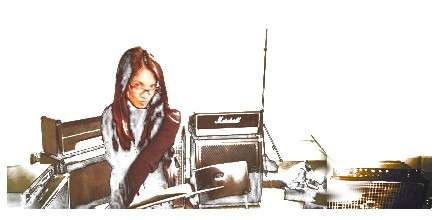
Let’s say someone walks into the audition room of The Voice, opens his mouth… and you feel right away that he is not going to make it. How do you react?
SARA WHARTON-ALI: 99.9% of the people who come to the auditions really do love singing and believe in themselves. So perhaps this particular show is not the best platform for them, but so what? For me, it’s very important to stay positive – if they like singing, then that’s what they like to do, and they should continue doing that!
That’s what I really like about my work. It comes from a very kind place of trying to build people up, not tear them down.

Is good casting more about intuition or about some very specific, technical know-how?
SARA WHARTON-ALI: I’ve been doing casting for quite a while, over 10 years. So sure, there are skills which you develop over time – and often it’s about drawing the best out of people, encouraging them, making them forget about the cameras and spotlights. My job is to get people to open up, to tell their deepest and darkest – and their brightest and lightest – in a short period of time.
And yes, intuition is involved too. Ever since I’ve been doing TM, there has undoubtedly been a deeper connection with the people I interview. A certain detachment, a level of ease which really helps to do a good job.
Where does this feeling of ease come from? Is it some version of letting go, of harboring less intense personal ambitions?
SARA WHARTON-ALI: We’re talking about a job situation, so I still need to get what I’m there for – in the sense of getting your job done, of fulfilling your duties. And at the same time, you can get it done in a way which allows you to feel good about it. This is extremely important for me.
So this ease, it’s a combination of powerlessness, of letting go of the control element – and yet a feeling of being held and secure. That’s what I attribute to my Transcendental Meditation practice: things moving more freely and more smoothly. And that’s actually true of any aspect of my life, not only my job!
This is very inspiring and insightful, Sara. Thank you for this wonderful conversation!


